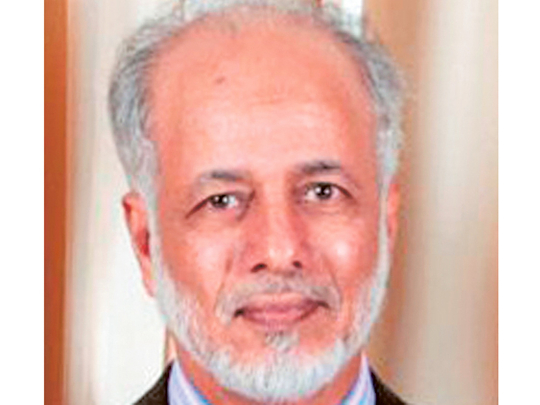
Manama: Oman’s foreign minister has said that he expects all the problems between the Gulf Cooperation Council (GCC) to be solved “soon”.
“We will see soon the return of the GCC ambassadors to Qatar and an end to all issues among the GCC countries,” Yousuf Bin Alawi said.
The recent meeting between Saudi King Abdullah Bin Abdul Aziz and Qatar’s Emir Shaikh Tamim Bin Hamad Al Thani as well as the visits by Saudi Arabia’s Deputy Crown Prince Muqrin Bin Abdul Aziz to GCC countries, have contributed to bringing views together, the minister said, Qatari daily Al Sharq reported on Tuesday.
A crucial meeting of GCC foreign ministers in the Red Sea port city of Jeddah is likely to address the issue of the ambassadors among other topics on its agenda.
Bahrain, Saudi Arabia and the United Arab Emirates, in an unprecedented move, pulled out their ambassadors from the Qatari capital Doha on March 5 amid complaints that Qatar was not fully committed to the GCC policy of non-interference in the domestic affairs of other GCC countries.
The GCC, established in 1981, includes Bahrain, Kuwait, Oman, Qatar, Saudi Arabia and the United Arab Emirates.
Qatar rejected the charges of interference and kept its top diplomats in the three fellow GCC countries.
However, the three countries insisted they would not reinstate them until Qatar changed its attitudes and adhered fully to the multilateral agreements, particularly those on non-interference of member states in other member states’ internal affairs.
Moves to contain the crisis within the GCC resulted in the Riyadh Agreement on April 17 and an ad-hoc committee was set up to look into the grievances and the steps taken to address them.
Reports of a quick breakthrough were dismissed as unrealistic and Saudi Arabia said that positions would not be altered and ambassadors would not be reinstated until practical measures were taken on the ground.
Last week, Bahrain criticised Qatar’s offer of nationality to members of some Bahraini families as a risk to Bahrain’s security and national interests. Bahrain said that Qatar had selectively been naturalising Sunni Bahrainis, and not others.
“We are confident that Qatar, a brotherly neighbour with Bahrain, will reconsider its position on this matter because naturalising Bahrainis negatively affects the security situation and the high national interests of Bahrain,” Shaikh Rashid Bin Khalifa Al Khalifa, the Undersecretary of Nationality, Passport and Residence Affairs (NPRA), said.
Last month, Shaikh Khalid Bin Ahmad Al Khalifa, Bahrain’s foreign minister, attributed the decision by his country to recall its ambassador in neighbouring Qatar to national interests and to show solidarity with Saudi Arabia and the UAE.
“We have deep-rooted ties with Saudi Arabia and the UAE, but there is also a Bahraini aspect to the issue,” Shaikh Khalid said. “Many Bahraini citizens have been lured by the Qatari nationality under the pretext that they have families in Qatar. The issue of nationality has a security dimension. Another issue is that the Qataris are discriminating between the citizens of Bahrain and are acting on a sectarian basis. If the Bahraini is Sunni and member of an Arab tribe in Bahrain, then the door is wide open [for Qatari citizenship]. However, if he is Shiite, the door is shut,” the minister said in an interview with Rotana Khalijia TV channel.
A report in the London-based Al Arab last week said that the GCC foreign ministers would discuss at their meeting in Jeddah the views of the committee on the implementation of the Riyadh Agreement.
The daily, quoting sources it did not identify, expected the announcement of a new decision following last week’s visit by Prince Miteb Bin Abdullah Bin Abdul Aziz, the Saudi Minister of National Guard, to Qatar, the first by a Saudi official since the three ambassadors were pulled out more than five months ago.
The Saudi visit occurred two days after a visit by General Shaikh Mohammad Bin Zayed Al Nahyan, Abu Dhabi Crown Prince and Deputy Supreme Commander of the UAE Armed Forces, to Saudi Arabia and Bahrain, and several days after visits by Prince Muqrin Bin Abdul Aziz Al Saud, Deputy Crown Prince and Second Deputy Premier, to all GCC countries, except Qatar.
On July 22, Qatar’s Emir Shaikh Tamim Bin Hamad Al Thani visited Saudi Arabia where he was received by King Abdullah Bin Abdul Aziz.











